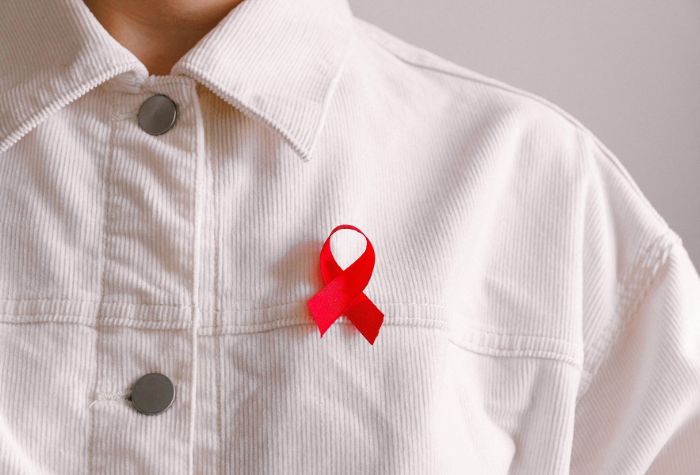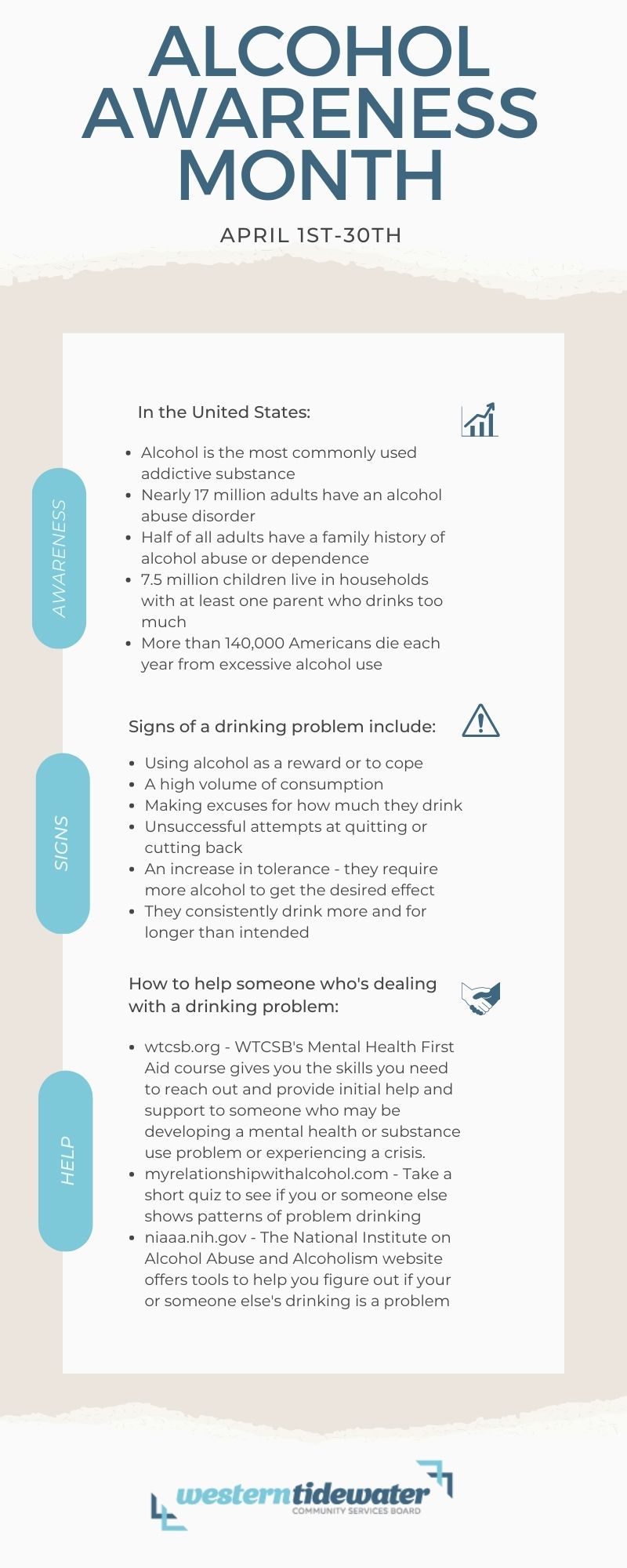Alcohol Awareness Month is a great time to consider your drinking patterns and those of others in your life. If you’re wondering if you’re drinking too much (or how much is too much?), read on to find out more about alcohol abuse, alcohol dependence, and resources that can help.
What Is Alcohol Awareness Month?
Alcohol Awareness Month was founded by the National Council on Alcoholism and Drug Dependence (NCADD) in 1987. It was started to raise awareness of the dangers of binge drinking and the risks of alcohol dependence. Another goal of Alcohol Awareness Month is to raise awareness of alcohol abuse in the U.S. and to fight the stigma surrounding it.
When Is Alcohol Awareness Month 2023?
Alcohol Awareness Month is observed every year from April 1st to April 30th.
Why Alcohol Awareness Month Is Important
Alcohol Abuse vs. Alcohol Dependence
Alcohol abuse occurs when someone drinks too much and too often. Their drinking habits may lead to a failure to fulfill their responsibilities at work, home or school.
Alcohol dependence, or alcoholism, occurs when someone is physically addicted to alcohol. They will experience withdrawal symptoms when trying to quit or cut back and it will be difficult to quit drinking without support.
Alcohol Abuse in the United States
Alcohol is the most commonly used addictive substance in the U.S. Nearly 17 million American adults aged 18 or older have an alcohol abuse disorder. Half of all adults have a family history of alcohol abuse or dependence and 7.5 million children live in households with at least one parent who drinks too much.
The Dangers of Alcohol Abuse and Dependence
Alcohol use is more socially acceptable than other substance use. Even so, it’s just as addictive as some illegal substances.
More than 140,000 people die each year from excessive alcohol use in the U.S. each year. These preventable deaths include:
- Premature deaths due to drinking too much in a short time – motor vehicle crashes, alcohol poisoning, using other substances with alcohol, and suicides
- Health effects from drinking too much over time – various types of cancer, liver disease, and heart disease
How Alcohol Awareness Month Helps
During Alcohol Awareness Month, government and community health organizations increase their efforts to educate the public on alcohol abuse and dependence. They also share resources for those struggling with substance abuse or for concerned family members.
Many organizations launch social media campaigns during Alcohol Awareness Month that give out useful information like:
- The causes of alcohol dependence
- How to spot the signs of alcohol dependence
- How to talk to someone about their alcohol use
- How to get help
If you’ve been worried that you or someone you know might have a problem with alcohol, this April is the perfect time to get all your questions answered and figure out what the next step is.
Get Involved With Alcohol Awareness Month
Whether you think you or someone you know might have a problem with alcohol, or you simply want to spread the word about Alcohol Awareness Month, here are a few resources you can use or share:
SAMHSA
For Alcohol Awareness Month this year, SAMHSA (The Substance Abuse and Mental Health Services Administration) is promoting their “Talk. They Hear You.” campaign on social media to encourage adults to talk to the teens and kids in their lives early on about the potential dangers of using alcohol. It’s not always an easy conversation to have, so if you’re looking for ideas on how to start, search for the #TalkTheyHearYou Hashtag on Facebook or Instagram.
Find resources that can help start the conversation here.
Looking for treatment options or resources for yourself? Find them here.
Mental Health America
In the latest episode of their podcast “In the Open,” Mental Health America invited a Certified Peer Specialist who’s been in recovery for 20 years to share how she uses her lived experience to help others who want to recover.
Listen to “Do I Have an Addiction?” here.
MyRelationshipWithAlcohol.com
This website has information on alcohol abuse and treatment options, as well as a short quiz to determine if you may have patterns of problem drinking.
Take the What is your drinking pattern? quiz here.
National Institute on Alcohol Abuse and Alcoholism
The National Institute on Alcohol Abuse and Alcoholism (NIAAA), a part of the National Institute of Health (NIH), has a wide range of blog posts about alcohol and getting help.
The NIAAA has even more tools on this web page, including calculators and worksheets to determine if your alcohol use is a problem, as well as a free 20-page booklet “Rethinking Drinking: Alcohol & Your Health” (you can download it or request a physical copy).
Get your Rethinking Drinking tools and resources here.
How Do You Know if Someone Has a Problem With Alcohol?
Common signs of an alcohol problem include:
- Making excuses for how much they drink
- High volume of consumption
- Using alcohol as a reward
- Using alcohol to cope
- Having a social circle that involves heavy drinking
- Avoiding non-drinking activities
- Feeling ill in the morning
Find out more about these 7 common signs of high-functioning addiction by reading the blog post here.
How do you know if you or someone you know is struggling with alcohol dependence (alcoholism)?
- They have had a few unsuccessful attempts at quitting or cutting back.
- They’ve shown an increase in tolerance – they require more alcohol to get the desired effect.
- They exhibit a loss of control when drinking (i.e. they consistently drink more and for longer than intended).
- They continue drinking, no matter the consequences.
- They experience withdrawal symptoms, like mild to moderate tremors, irritability, anxiety, or agitation. Very heavy drinkers might experience more intense withdrawal symptoms like hallucinations, seizures, confusion, high blood pressure and fever. These symptoms can be fatal. This is why it’s so important for someone starting their recovery journey to reach out for support and to consider starting in medical detox.
Here’s How You Can Help Someone Who’s Struggling With Alcohol Abuse
If you realize that someone you know has a problem, you may want to reach out and offer help, but that initial conversation is so awkward that many people avoid it.
Related: How Do I Help a Friend With a Substance Abuse Problem?
If you truly want to help someone who’s struggling with alcohol abuse or another mental health problem, consider registering for our Mental Health First Aid course. This training gives you the skills you need to reach out and provide initial help and support to someone who may be developing a mental health or substance use problem or experiencing a crisis.
What you learn will take the fear and hesitation out of starting those crucial conversations about mental health and substance use problems.
Want to help out next time you see someone suffering?
Check the calendar to see when the next Mental Health First Aid course is and register today.
Are you or someone else experiencing a mental health or substance abuse crisis? Need to talk to someone right away?
Call the Region Five Crisis Line anytime, 24/7, at 757-656-7755.
Share the infographic! Click to get the embed code.
<a href=”https://www.wtcsb.org/why-alcohol-awareness-month-is-important/”>
<img src=”https://www.wtcsb.org/wp-content/uploads/2023/04/Why-Alcohol-Awareness-Month-Is-Important.jpg” /></a







